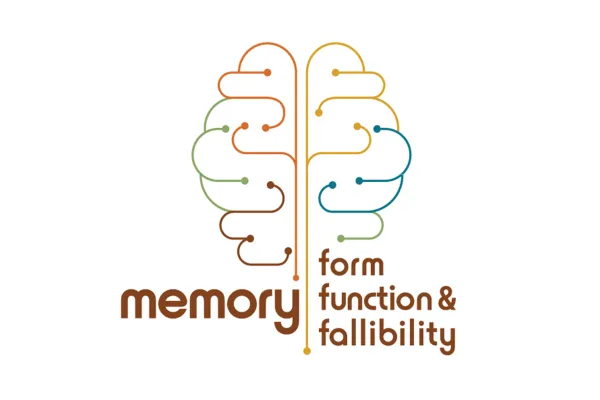Memory
Published September 1, 2015
Project Description
Memory is crucial to human thought and reasoning; it is fundamental to daily function, to the construction of personal identity, to social interaction and historical documentation. Fields as varied as religion and computer science, literature, linguistics and anthropology have long grappled with the nature of memory and how it functions. Recent research in neuroscience has added new levels of complexity to our understanding of memory and its reliability, and to questions that cut across all disciplines: What is the relationship between memory and an event? Is memory a recording or a re-creation? How are collective memories constructed and sustained?
This yearlong project aims to consider the great range of mechanisms, uses and representations of memory across disciplinary fields, with a particular focus on how the limitations of memory, and the ways in which memory can be manipulated, impact both the individual and society.
Over the past four decades, scientific studies of memory have proposed various classifications to understand the relationship between cognitive function and past experience. Memories have been classified as short- and long-term, and as procedural (skills and behavior), semantic and episodic, with localized brain regions recognized for specific memory function. Research in the 'biology of mind' has revealed molecular, cellular and systems underpinnings of memory. Neuroanatomy has identified the direct connections between sensory inputs (e.g., olfaction and gustation) to the hippocampus, an area of the brain intimately involved in memory consolidation.
These connections between memory and the senses have long been intuited by thinkers outside the sciences. Proust's meditation on the madeleine in À la Recherche du Temps Perdu explores the ways in which the experience of taste can open up an entire lifetime of personal memories. Philosophers from Locke and Hume to Bergson and Russell have focused on the relationship between memory and representation, while work by historians Frances Yates and Pierre Nora underlines the importance of place in the construction of memory. Sociologist Maurice Halbwach's theory of collective memory examines the sometimes fictional creations of memories that are then shared by members of a group or society.
Indeed, across all these fields we know that memory can be both created and manipulated. Fundamental to Freudian analysis was the notion of the unconscious mind as a reservoir for repressed memories which influenced consciousness. Psychoanalysis could draw forth certain of those memories and repress others. More recently the Tonegawa lab at MIT demonstrated that false memories can be deliberately implanted in a rodent brain using cellular and molecular techniques.
Works of artistic, cinematic and literary representation can shape collective memory with tremendous effect. Goya's revolutionary painting "The Third of May 1808," for example, shaped public memory of the Spanish resistance during the Peninsular War. Films and novels about the Algerian War, from both sides of the Mediterranean, have confronted five decades of censorship—itself a potent form of repressed memory—reigniting national outrage and activism. At the same time, the misrepresentation of personal memory in the recent wave of "fake memoirs" (James Frey, Herman Rosenblatt, Margaret Seltzer) calls into question the relationship between art, memory and ethics.
In this project, we hope to explore the disciplinary intersections generated by the question of memory, its reliability and unreliability. Neuroscience research on confabulation, for example, has implications in criminology. History can be manipulated for political ends. Collective memory is constructed by archival research, acts of commemoration, and literary and artistic representation. Technology is an overarching concern in numerous disciplines, as the rise of virtual communities in the 21st century and the increased digitalization of information has dramatically affected our understandings of individual and collective memory as well as our fundamental relationships to one another. Finally, we aim to bridge teaching and research through an ongoing reflection on the impact of memory in learning and in pedagogical practices. Have advances in digital access to information weakened our capacity to memorize and remember, and does it matter?
Project Fellows
- Aisha Amin '17, Neuroscience and Theatre
- Pau Atela, Mathematics & Statistics
- Claire Bowman '16, Economics
- Matilda Cantwell, Religious and Spiritual Life
- Dawn Fulton, French Studies, Organizing Fellow
- Patricia Gonzalez, Spanish & Portuguese
- Bill Hagen, Comparative Literature
- Adam Hall, Biological Sciences, Organizing Fellow
- Lectretia Knapp, Art
- Nikila Lakshmanan '17, Philosophy and The Study of Women and Gender
- Sarah Orsak '16, The Study of Women and Gender
- Jocelyn Proietti '16, English Language and Literature
- Elizabeth Pryor, History
- Christine Reynolds, Student Financial Services
- Nancy Sternbach, Spanish & Portuguese
- Dominique Thiebaut, Computer Science
- Janie Vanpée, French Studies
- Jonathan Westphal, Cognitive Science
- MJ Wraga, Psychology
- Lynne Yamamoto, Art
